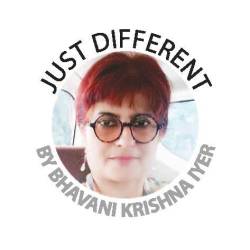THE age-old debate about religion vs humanity has been simmering for ages, yet remains unresolved.
Recently, during a class discussion, a senior academician holding a high office at a public university spoke about her upbringing. She unhesitatingly divulged that her father regarded religion as the most important aspect of one’s life, above everything else.
I had a hundred questions brewing in my mind but I did not want to turn the classroom discussion into a religious debate. Hence, I am venting it in this space.
I am a theist and respect atheist and agnostic views, but I struggle to comprehend why a person with such educational and academic achievements cannot understand that humanity should be prioritised over religion.
There is an argument that religion is all-encompassing and should include humanity. This is agreeable in principle but in practice, we see the negative impact religion has had on the world today.
I have often opined that religion and its interpretation by believers are the root cause of conflict around the world.
It is disheartening that the tenets of religion, which were aimed at promoting communal harmony, have become the primary reason for communal disharmony.
When we approach religion with a critical mindset and intent to mock another faith, we walk into a highly potent minefield. Peace is what all religions profess, but in the name of religion, some believers propagate unrest and hate.
Religion, at its core, is a collection of cultural systems, belief systems and worldviews that relate humanity to spirituality and, sometimes, to moral values.
The key element of interest to me is humanity, a virtue linked with altruistic ethics derived from the human condition. It signifies love and compassion towards each other, differing from mere justice by including a level of altruism.
Against this backdrop, why has religion become man’s worst enemy?
Religion, at its essence, serves as a vital context for instilling moral values, fostering communal bonds and providing individuals with a sense of purpose and belonging.
It offers a comprehensive system of beliefs that guide adherents towards ethical conduct, spiritual growth and a harmonious coexistence.
However, the inherent goodness of religion can be subverted when its teachings are misinterpreted or manipulated for personal or political gain.
Such distortions often lead to exclusionary practices, intolerance and conflict, undermining the very principles of compassion and altruism that many religions advocate.
This contradiction highlights the need for a critical yet respectful engagement with religious doctrines, ensuring that they are interpreted in ways that promote inclusivity, peace and the universal values of humanity.
By acknowledging the potential for profound good and significant harm within religious practices, scholars and practitioners can work towards a more harmonious integration of religious and humanistic principles in a contemporary society.
To make religion congruous with human existence, it is essential to reinterpret and practice religious tenets in a way that aligns with universal human values such as compassion, empathy and justice.
Emphasising common values across religions fosters unity and mutual respect, while promoting interfaith dialogue helps reduce misunderstandings and build cooperation.
Integrating religious education with teachings on tolerance and critical thinking can cultivate an inclusive mindset that respects diverse beliefs.
Religious leaders should correct misinterpretations of texts that lead to intolerance and conflict, ensuring accurate understanding in the wider and evolving context.
Supporting social justice initiatives allows religions to address contemporary ethical issues and human rights, demonstrating their relevance in modern society. Encouraging community service bridges religious practice with humanistic values, contributing to societal betterment.
Additionally, adapting religious teachings to modern contexts, including technological advancements and global interconnectedness, helps maintain core principles while addressing contemporary challenges.
By incorporating these approaches, religion can enhance its role in promoting ethical behaviour, social cohesion and universal well-being, ensuring it remains a positive force in human life.
Jean-Jacques Rousseau, an 18th-century philosopher, is well-known for his belief in the natural goodness of humans. He argued that humans are born pure and good, and it is the corrupting influence of society that leads to negative behaviours.
This theory contrasts with views that emphasise inherent sinfulness or selfishness in human nature, offering a more optimistic outlook on human potential and ethical behaviour.
Meanwhile, according to an American writer and philosopher, “Religions are many and diverse, but reason and goodness are one.”
This quote emphasises the idea that while there are many different religions, the principles of reason and goodness are universal, suggesting a pathway for peaceful coexistence.
In sum, we can if we want to.
Comments: letters@thesundaily.com











